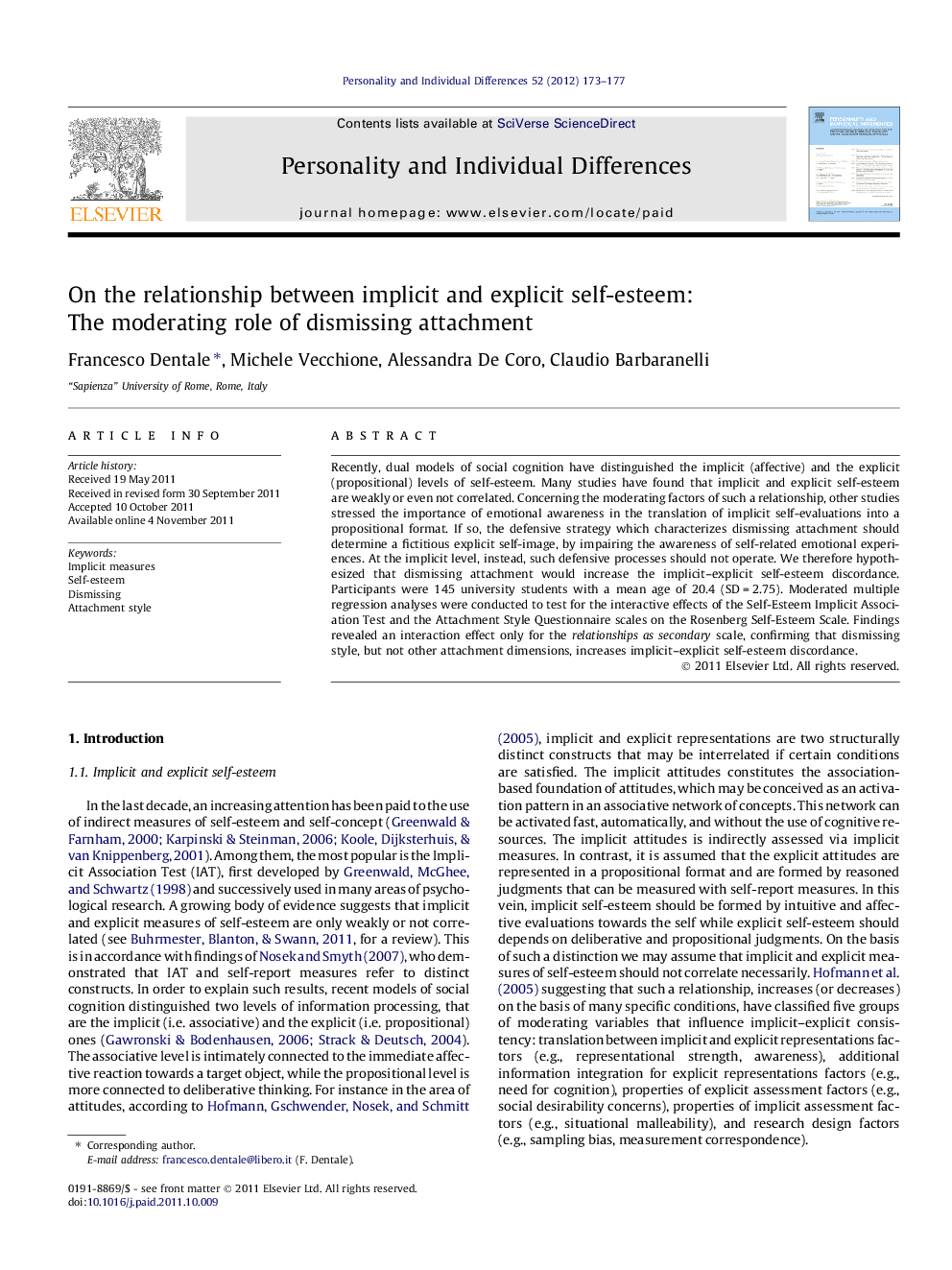| Article ID | Journal | Published Year | Pages | File Type |
|---|---|---|---|---|
| 891211 | Personality and Individual Differences | 2012 | 5 Pages |
Recently, dual models of social cognition have distinguished the implicit (affective) and the explicit (propositional) levels of self-esteem. Many studies have found that implicit and explicit self-esteem are weakly or even not correlated. Concerning the moderating factors of such a relationship, other studies stressed the importance of emotional awareness in the translation of implicit self-evaluations into a propositional format. If so, the defensive strategy which characterizes dismissing attachment should determine a fictitious explicit self-image, by impairing the awareness of self-related emotional experiences. At the implicit level, instead, such defensive processes should not operate. We therefore hypothesized that dismissing attachment would increase the implicit–explicit self-esteem discordance. Participants were 145 university students with a mean age of 20.4 (SD = 2.75). Moderated multiple regression analyses were conducted to test for the interactive effects of the Self-Esteem Implicit Association Test and the Attachment Style Questionnaire scales on the Rosenberg Self-Esteem Scale. Findings revealed an interaction effect only for the relationships as secondary scale, confirming that dismissing style, but not other attachment dimensions, increases implicit–explicit self-esteem discordance.
► Implicit and explicit self-esteem are not correlated. ► Dismissing attachment increased the implicit–explicit self-esteem discordance. ► The moderator effect was found for the relationships as secondary scale.
